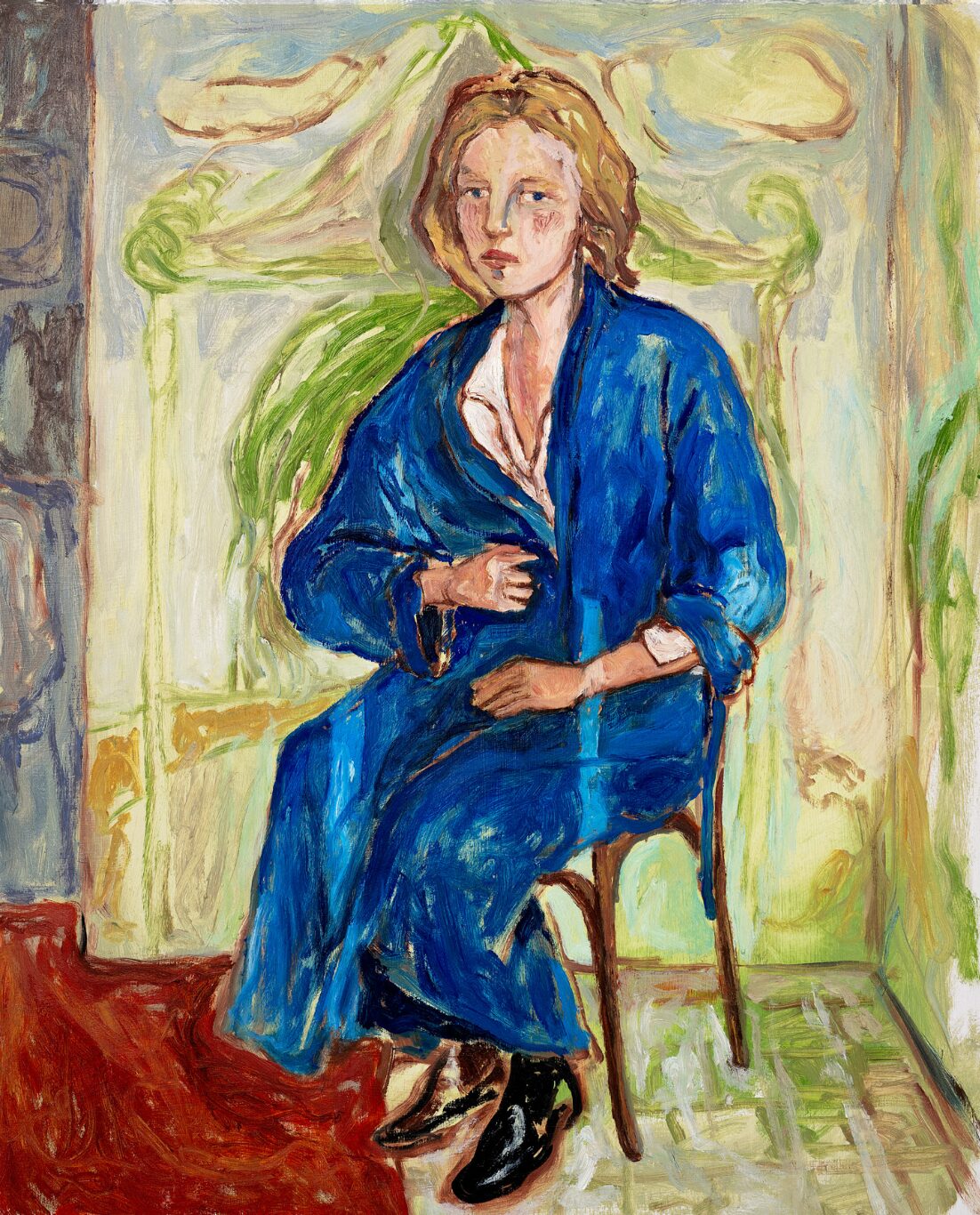Joline Kwakkenbos is a Dutch artist known for her expressive self-portraits that explore themes of queerness, femininity, and the human experience. Her work, ranging from free-spirited depictions to contemplations of seduction, societal roles, and vulnerability, employs vibrant colours and subtle symbolism to invite viewers into her world.
Your work, which is rooted in self-portraiture, is instantly recognisable for its expressive brushstrokes and vivid colour palettes. In what ways does painting yourself allow you to explore the theme of identity?
Initially, I painted self-portraits because there were aspects of myself that I didn’t fully understand or like, and painting became a way for me to take control and to explore new facets of my inner landscape. In 2017, I painted my first self-portrait, where I posed as Lady Justice. But there were two figures beside me, each representing a different version of myself from different times – one from the past and one that was longing for the future. Through the creation of that painting, I realised I could control and shape my emotions, giving them both a place and structure. Over the years, my approach has shifted, and self-portraiture has become a way for me to play with my identity. What I paint is not always the truth. It’s about becoming something more than I know or see, and through the process, surprising myself.
When navigating the balance between autobiography and fiction, how do you, as an artist, relate to your own work? Does each piece address a distinct theme and narrative, or do you view your work as an ongoing exploration of your thoughts on sexuality, identity, and memory?
There’s definitely a balance between what I draw from my personal experiences and what I borrow from fictional stories and fantasies. When people ask me why I paint myself, it’s a difficult question to answer because, for me, it doesn’t really feel like that. I consider my paintings more like versions of myself. Ones that I connect with, and sometimes, ones that I become. I find this interesting because it allows me to explore a narrative not as something I am, but as something I can be. That’s my way of experimenting with my identity.
read more about Kwakkenbos’ practice
